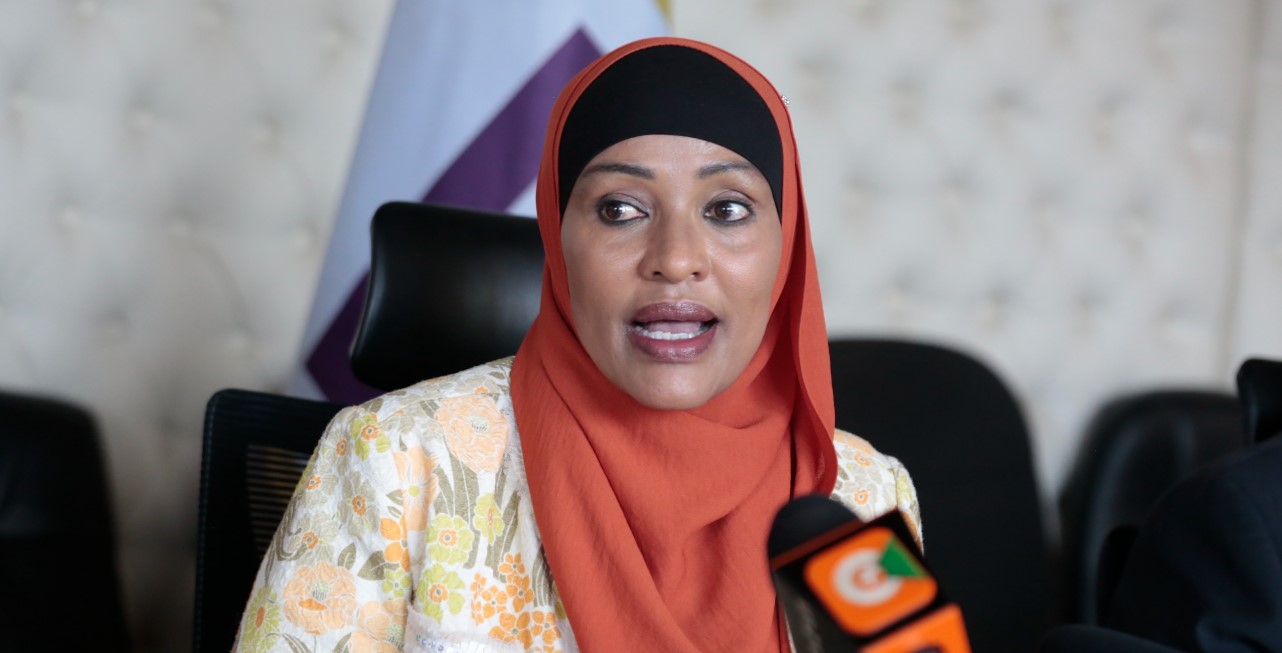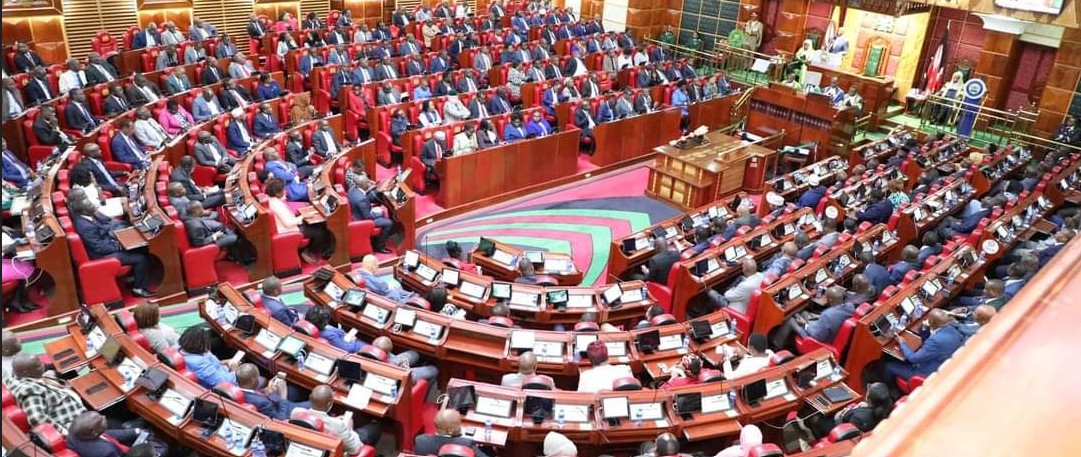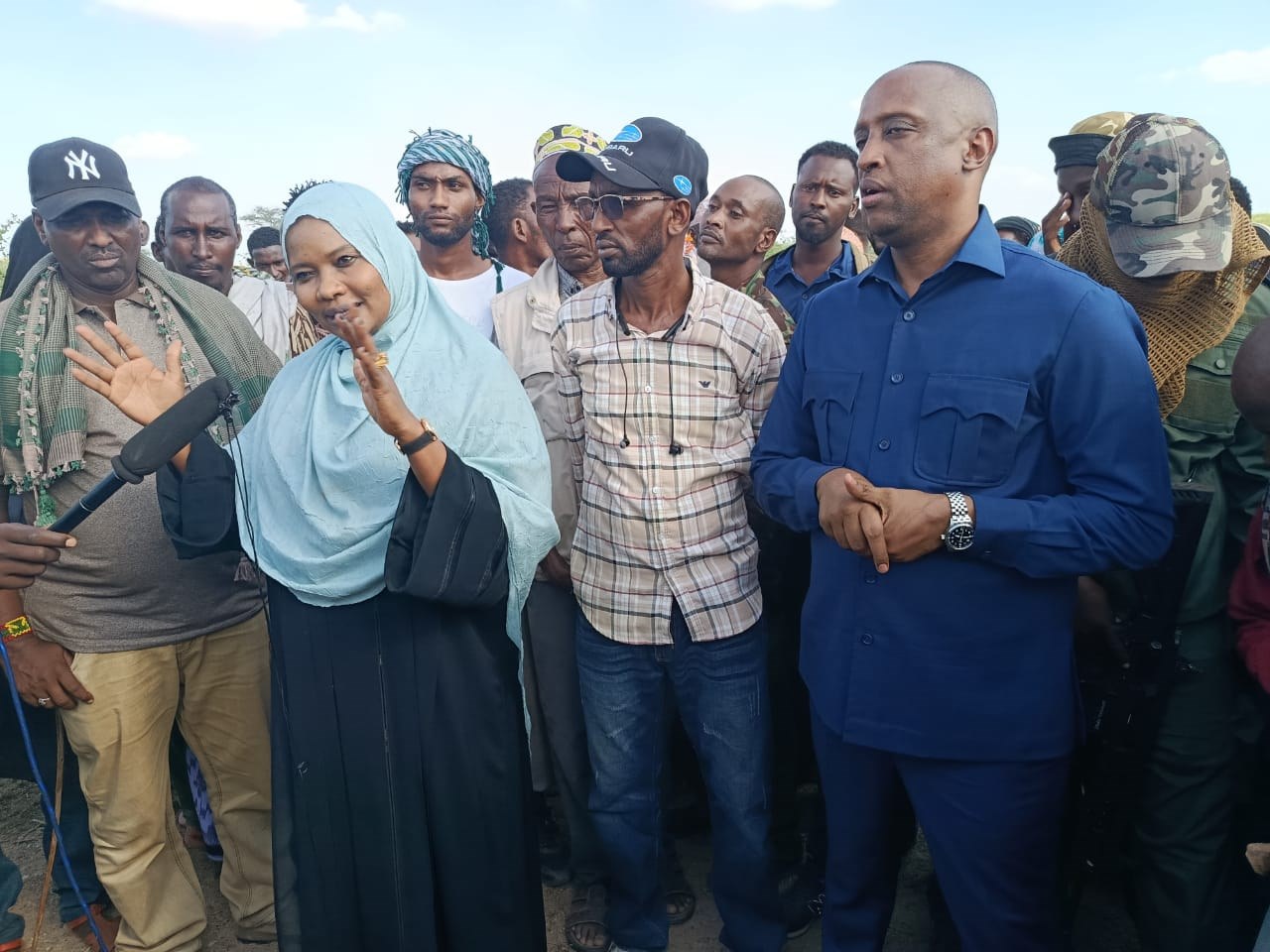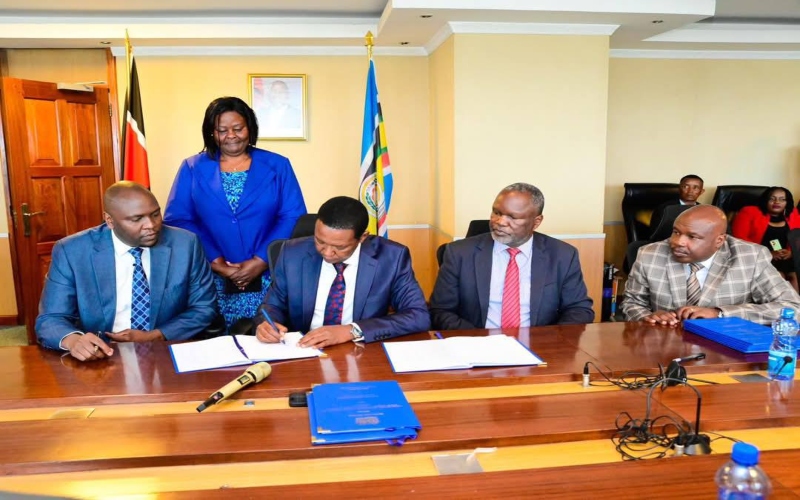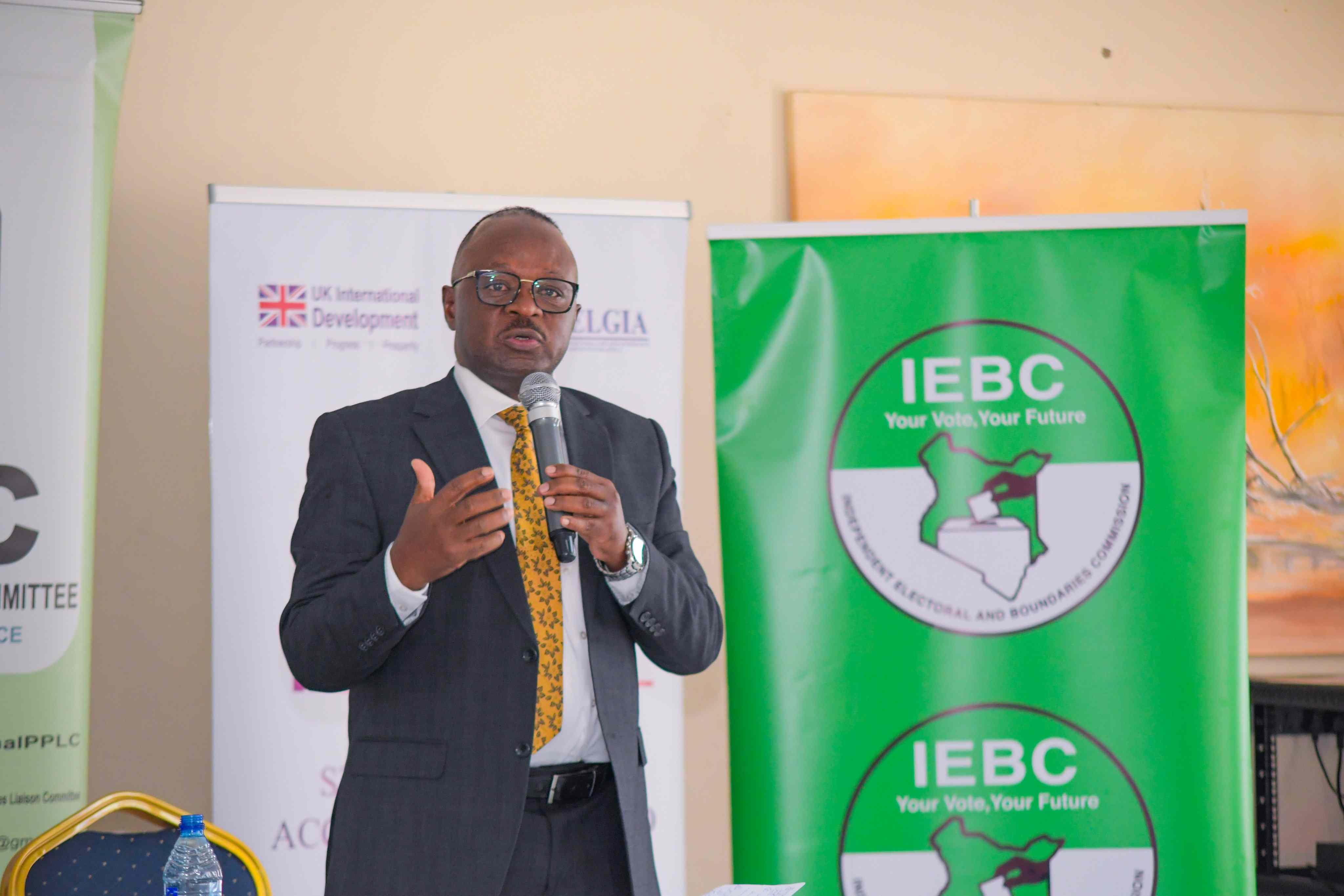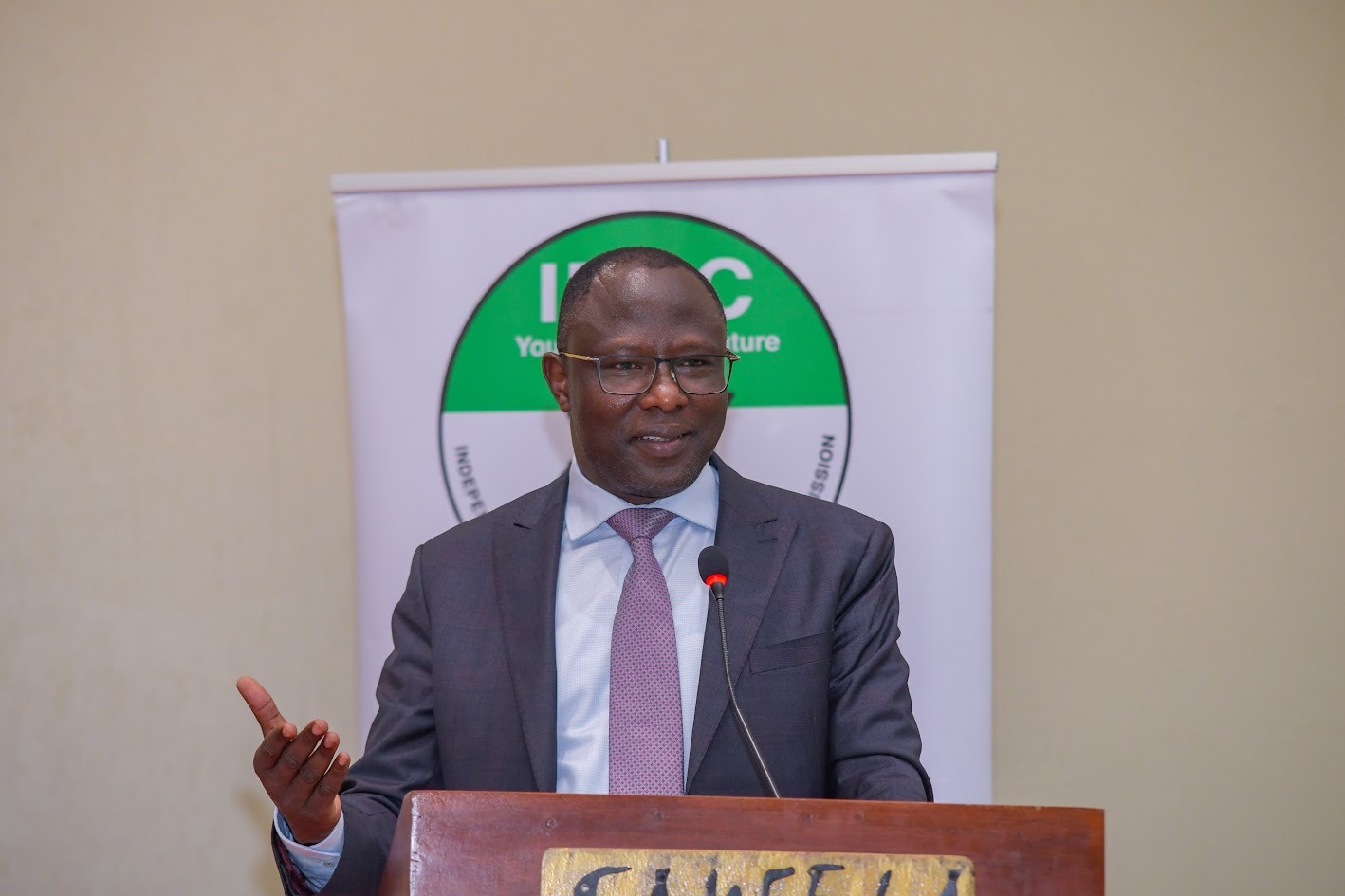Police to be barred from national examination rooms to boost student performance
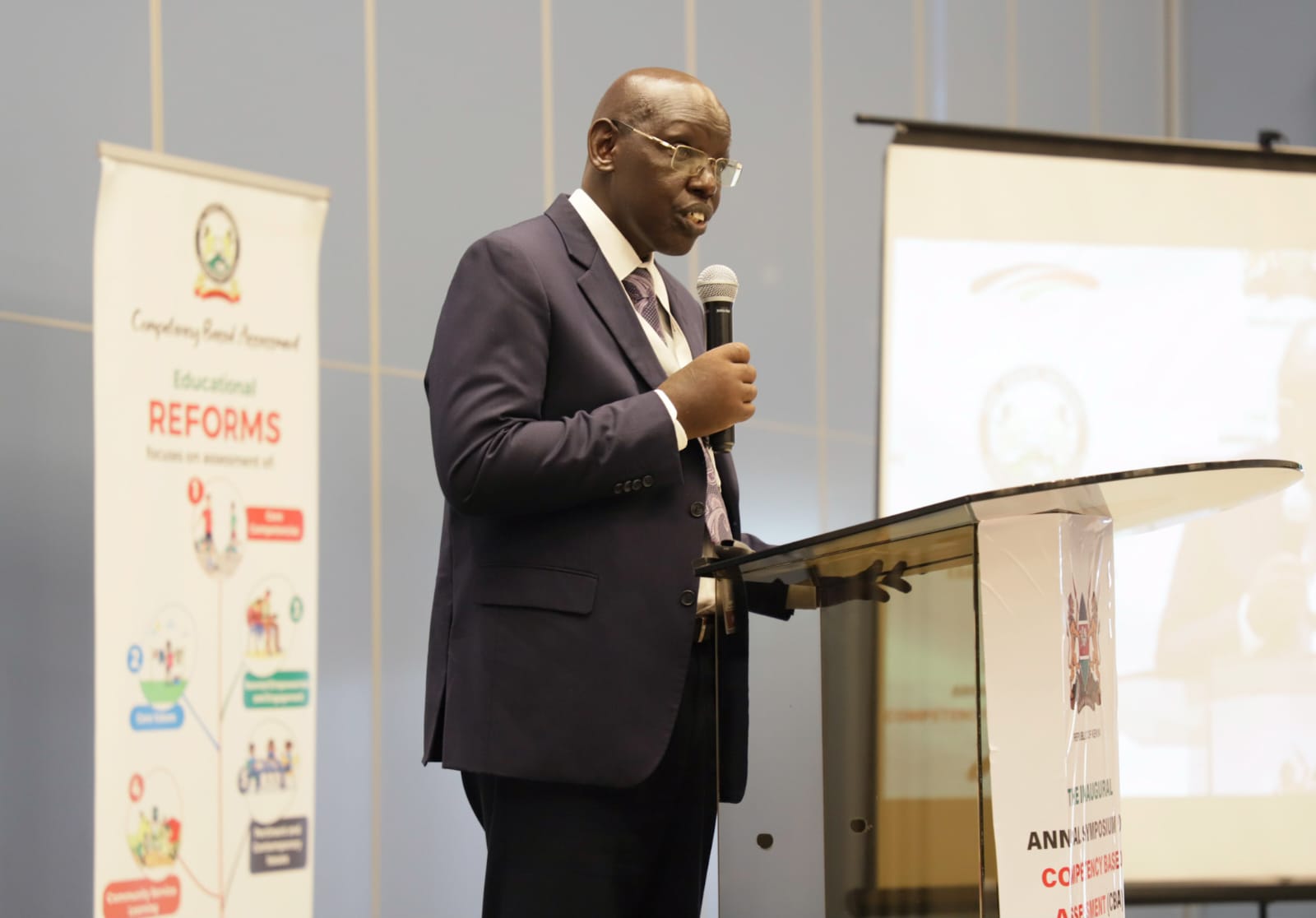
According to Kipsang, police officers will only be allowed to escort teachers supervising exams in schools this year.
Education Principal Secretary Belio Kipsang has declared that police officers will no longer be present in examination rooms for national exams and assessments for grades 6 and 9 in a bid to improve student performance.
Speaking on Thursday during the inaugural Annual Symposium on Competency-Based Assessment he said the presence of police officers in examination rooms will have to stop to pave the way for students to give their best.
More To Read
- PS Belio Kipsang urges use of e-Citizen, warns against cash payments
- Education Ministry closes 10 ‘ghost’ schools as audit finds 6,000 under-enrolled institutions
- Govt announces measures to resume learning in universities after 49-day lecturers' strike
- Tunza Mtoto Coalition demands full disclosure of ghost student audit findings
- Interior Ministry seeks Sh4.2 billion to fund free national ID program
- No more certificates for Grades 6 and 9 learners under new education policy
“This year we have an assessment in our primary schools and our examination in our secondary schools. This is the most opportune time to change how we administer assessments. I'll be very surprised to see police officers in a couple of our schools in assessment rooms this year. It's time to let our children be children,” Kipsang said.
“If we are nurturing healthy potentials, then what is there to fear in an assessment room that we cannot allow learners to give their best potential.”
According to Kipsang, police officers will only be allowed to escort teachers supervising exams in schools this year.
“This year I’m looking forward to our good brothers and sisters, in the security sector to escort our teachers and those of us who will be handling the assessments to schools because you never know what might go on between the containers and the schools. Once we enter the school compound, our children will be ready to give us their full potential,” he said.
He acknowledged the Ministry of Education through the Kenya National Examinations Council (KNEC) for organising the symposium to ensure learners attain the required skills and knowledge.
Kipsang also explained the grading structure for Grade 6 learners undergoing the KPSEA summative test, pointing out that a significant portion of their marks—60 per cent—comes from formative tests administered in Grades 4 and 5.
“This part of their grading has always been a private affair between the teacher and the student, and we see no need for additional oversight in these situations. Moving forward, we want to empower teachers to continue leading their students' progress as they have in earlier grades,” he said.
He further emphasised that assessments for lower grades are a direct extension of ongoing school-based evaluations, traditionally managed solely by teachers and students without external interference.
“We will maintain this approach and allow the natural teacher-student interaction to foster a better learning and assessment environment,” he added.
However, Kipsang clarified that due to their critical nature, Grade 12 examinations will still see police involvement to ensure the integrity of the exams.
“While we are minimising external intervention in lower-grade assessments, the significant stakes attached to Grade 12 exams necessitate a continued police presence,” he said.
Additionally, Kipsang unveiled plans to expand educational infrastructure, with the construction of 16,000 new classrooms by January 2025. The development aims to accommodate the first wave of Grade 9 students under the new educational structure.
“Ensuring adequate facilities for our Grade 9 students by the time the 2025 academic year begins is a key priority for the government,” Kipsang affirmed.
Term two will begin from April 29 to August 2 a period of 14 weeks and proceed for half term from June 20 to June 23.
They will then close for the August holiday from August 5 to August 23 which is three weeks.
In term three, schools will begin the Kenya Primary School Education Assessment (KPSEA) and the Kenya Intermediate Level Education Assessment from October 28 to October 31 which is four days.
The KCSE examination will run from November 4 to November 22. Schools will then proceed for the December holiday from October 2024 to January 3, ten weeks.
Top Stories Today

